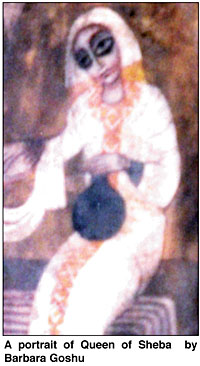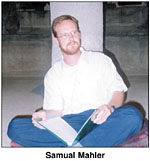
Queen of Sheba of Yemen [Archives:2002/29/Last Page]
July 15 2002
BY MOHAMMED BIN SALLAM
YEMEN TIMES STAFF

Yet the Scientific results of the ancient discoveries did not satisfy those who believe in the existence of the Queen of Sheba and its kingdom in the 10th century BC. On the other hand, the discovery of many Marebian antiques which date back to the 2nd century BC, and the

The main source on which Arabs and Muslims have relied is the Holy Koran, (Sura Anamal) which mentions the story of the Queen of Sheba’s visit to Solomon without mentioning a specific name. This Sura is of a great significance to the interpreters who gave the Queen of Sheba its famous name. The Old Testament is also a key source because it refers to the Queen of Sheba and again no names were mentioned. The story of the Old Testament concentrates on the wisdom of King Solomon, his wealth, kingdom and the presents granted to him by the queen of Sheba”.
“The main lesson learned from this meeting is the fact of monotheism. The story of the Queen of Sheba gathered us around as we all agree on the wisdom of Solomon and the fame of the Queen of Sheba,” he concluded.
——
[archive-e:29-v:2002-y:2002-d:2002-07-15-p:./2002/iss29/lastpage.htm]


